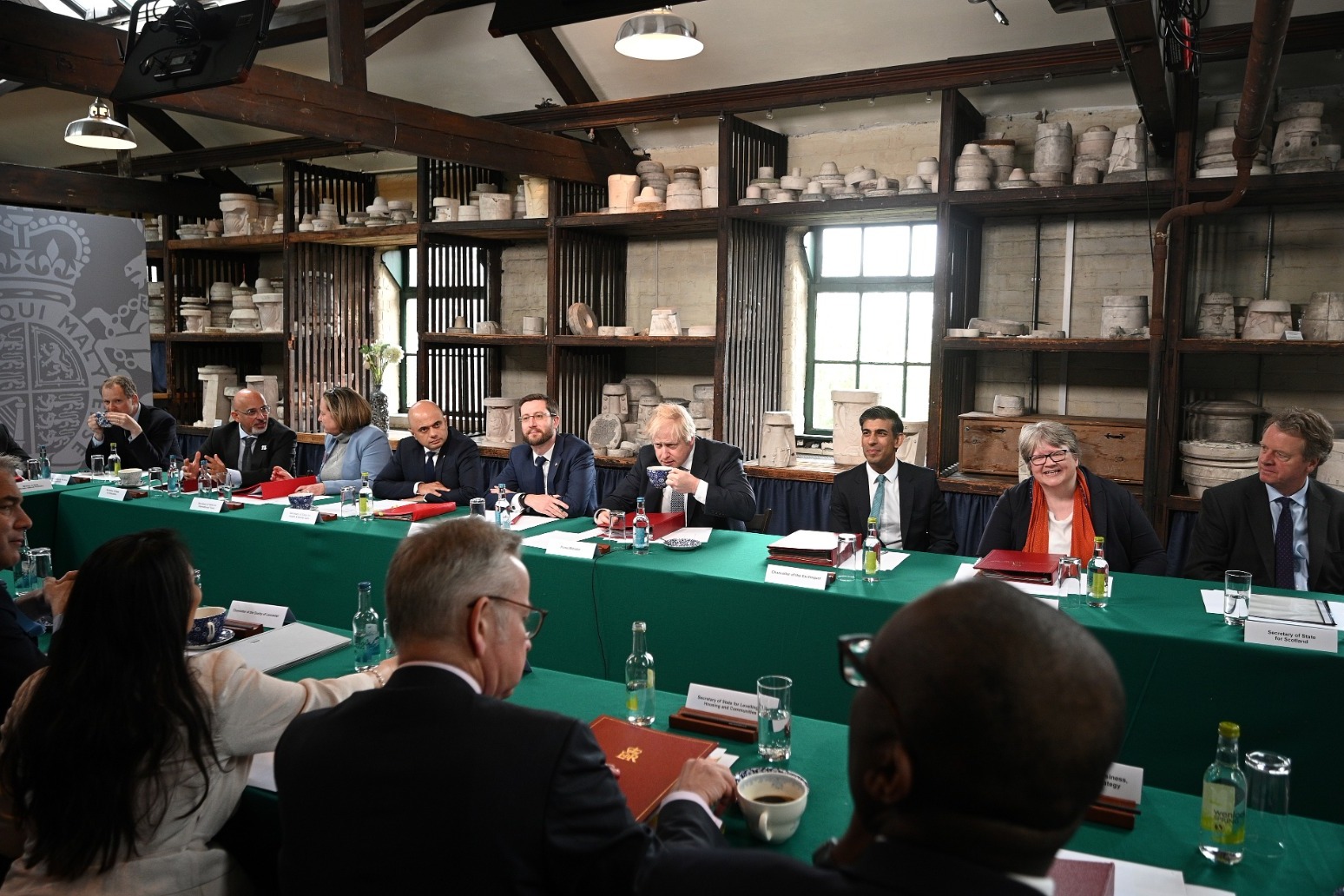
Chancellor ‘pragmatic’ about idea of introducing windfall tax
The Chancellor has said he is “pragmatic” about the idea of introducing a windfall tax as the Prime Minister refused to rule out targeting energy companies to help ease the cost-of-living crisis.
Rishi Sunak has reportedly told Treasury officials to examine plans for a levy on the soaring profits of oil and gas giants as financial pressures continue to take a toll on people across the country.
Speaking to the BBC on Thursday, the Chancellor said he is not “naturally attracted” to windfall taxes, but he is “pragmatic” about the idea.
“I find there are two camps of people, actually: there’s some people who think windfall taxes can never be the answer, and then there are other people who think windfall taxes are an easy, quick, simple answer to solve every problem,” he said.
“I’m not in either of those schools of thought, I’m pragmatic about it. As I said, I’m not naturally attracted to the idea of them.
“But what I do know is that these companies are making a significant amount of profit at the moment because of these very elevated prices.
“What I want to see is significant investment back into the UK economy to support jobs, to support energy security, and I want to see that investment soon. If that doesn’t happen, then no options are off the table.”
Earlier, in an interview with LBC, the Prime Minister said that while he still does not like such taxes because of the impact on investment, it is something that will have to be considered.
It follows an admission by BP chief executive Bernard Looney that his firm’s investment plans would not be affected by a windfall tax.
Pressed on Mr Looney’s comments, Mr Johnson said: “Well, you know, then we’ll have to look at it.”
However, he added: “The disadvantage with those sorts of taxes is that they deter investment in the very things that they need to be investing in – new technology, in new energy supply.
“I don’t like them. I didn’t think they’re the right thing. I don’t think they’re the right way forward. I want those companies to make big, big investments.”
Mr Johnson refused to be drawn on what further action the Government might take to address the cost-of-living crisis when asked about the matter following a Cabinet away day in Staffordshire on Thursday.
Asked what more he thinks needs to be done, he told broadcasters: “In July, for instance, what’s already happening is that … there is going to be the tax cut for everybody on, or 70% of people, on national insurance, that’s probably worth about £330.
“You’ve already seen the cuts in council tax. We will do things to help people in the short term, of course.
“And I’m not going to anticipate anything more that we may do.”
Former Tory minister David Gauke said earlier on Thursday that he suspects the Government will end up taxing the profits of oil and gas companies to ease the cost-of-living crisis.
He told BBC Radio 4’s World at One programme: “It’s not ideal. I don’t think it’s an easy or straightforward answer.
“I can understand why the Treasury is reluctant to go down this route when we do want to encourage investment, particularly in the energy sector, as we move away from relying on hydrocarbons.
“I suspect, in the end, the political case for it, the way in which one can raise really quite substantial sums of money, and if you can try to deliver this in a way that makes it clear that the Government is not going to come back again and again, then it might not have that much of a behavioural impact.
“You know, I think increasingly it seems the oil companies are kind of reconciled to the fact that they’re going to get hit with this at some point or other.
“So, it’s not ideal, but I suspect in the end that they will turn to those oil and gas companies and pick up an element of what are exceptional profits.”
Households face soaring energy bills, inflation is forecast to hit 10%, and welfare payments and wages are falling far behind the increase in prices.
No 10 had said the Prime Minister would use Thursday’s away-day to “rally Cabinet ministers to deliver on the public’s priorities and bring the benefits of the Queen’s Speech to life”.
Published: by Radio NewsHub